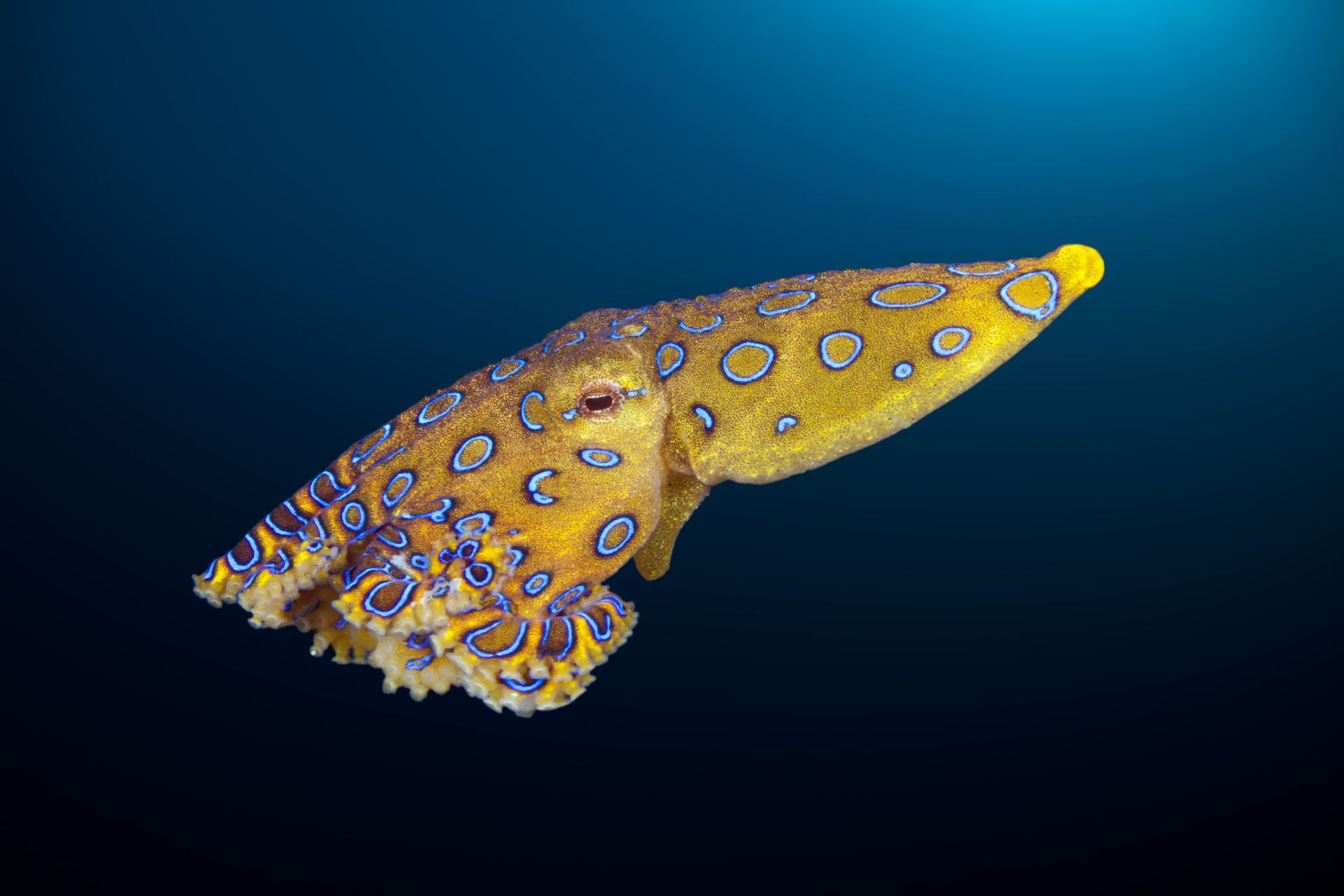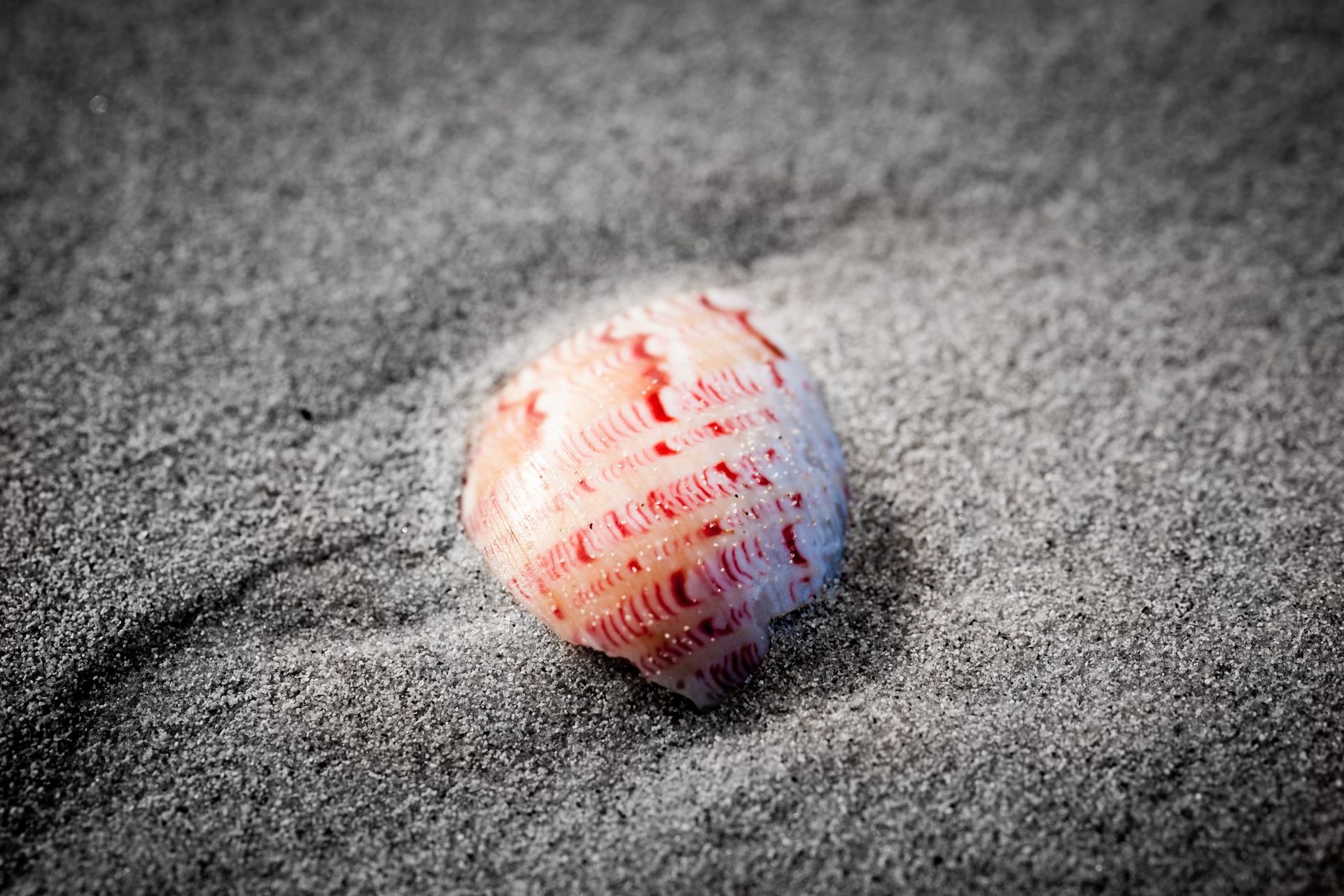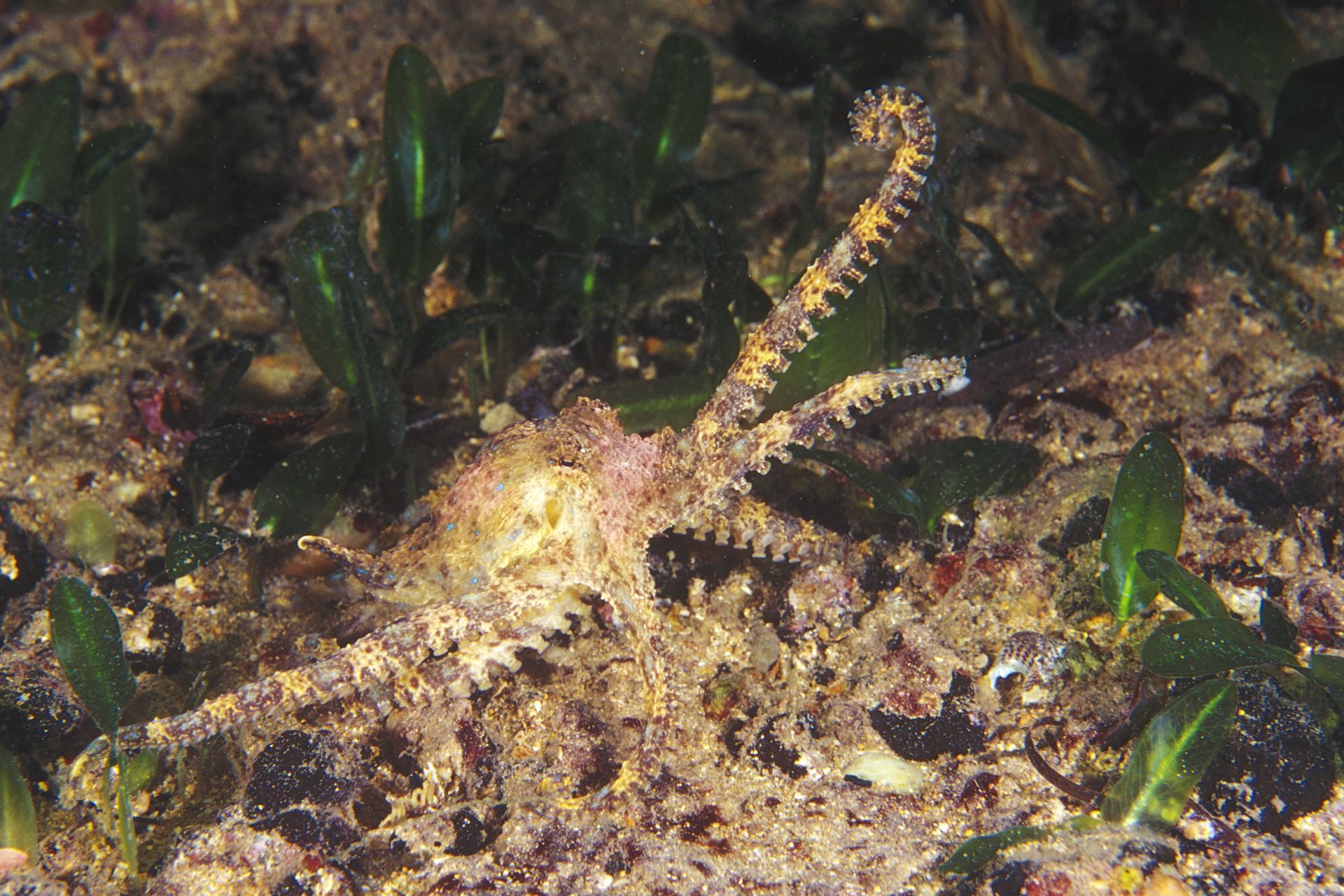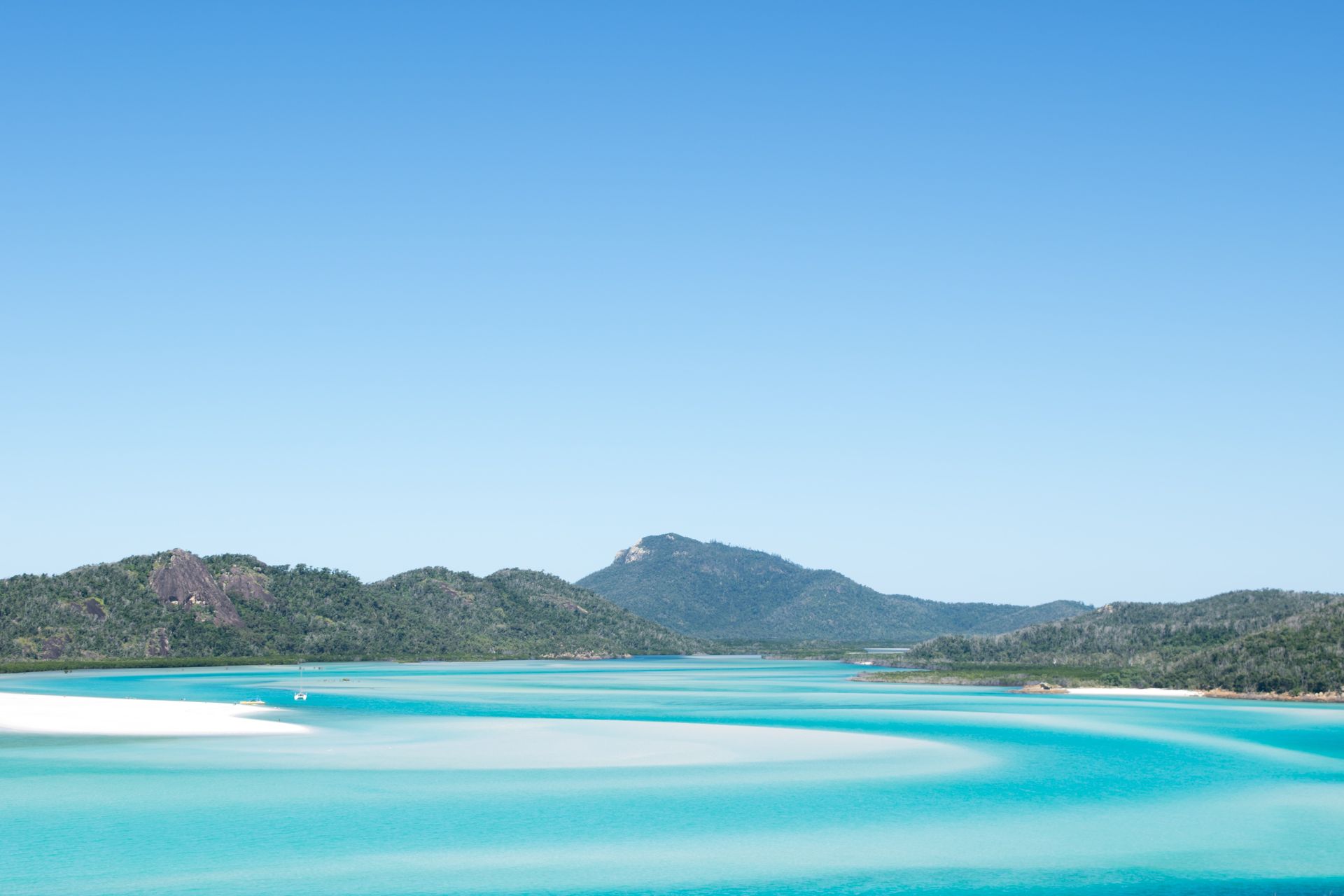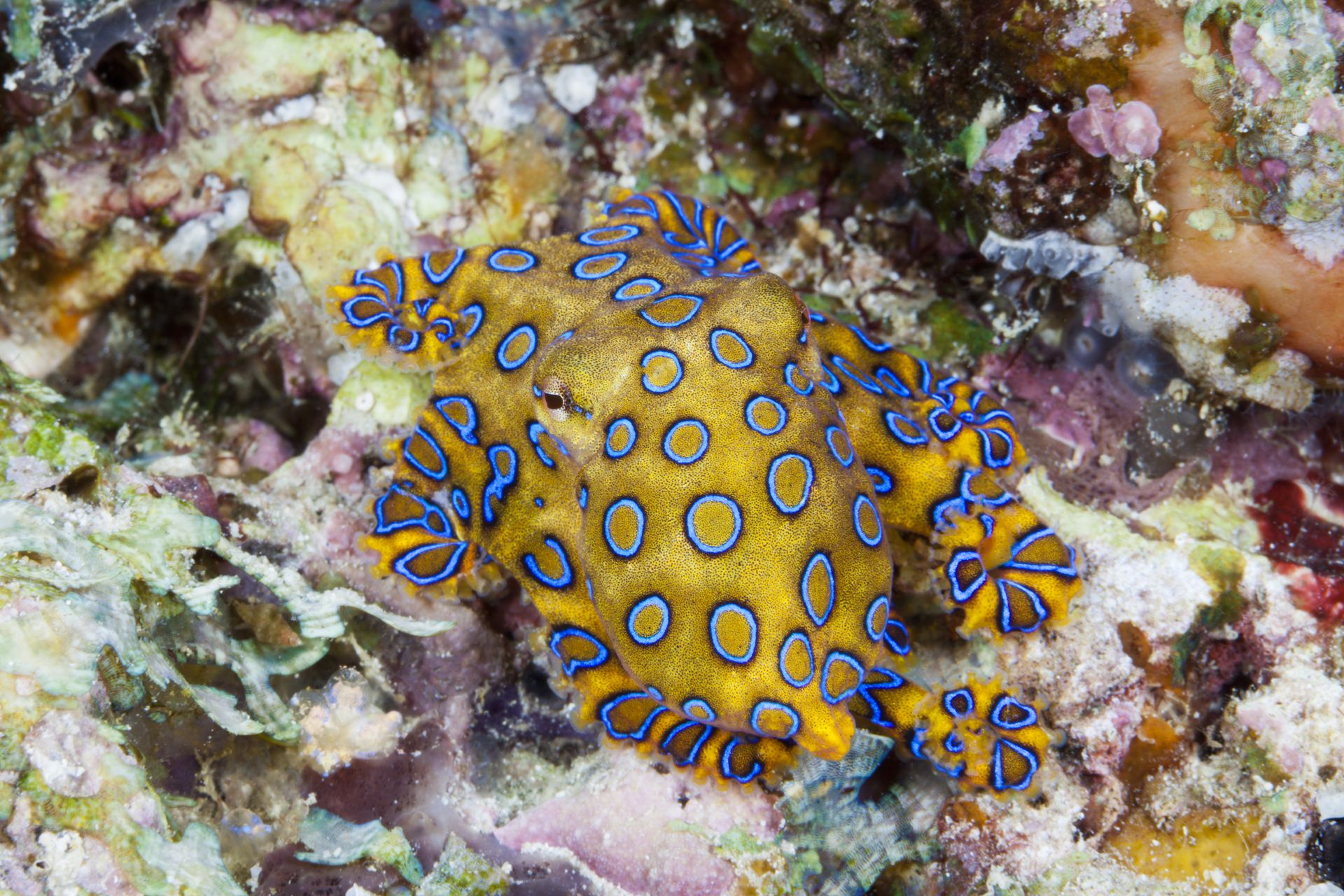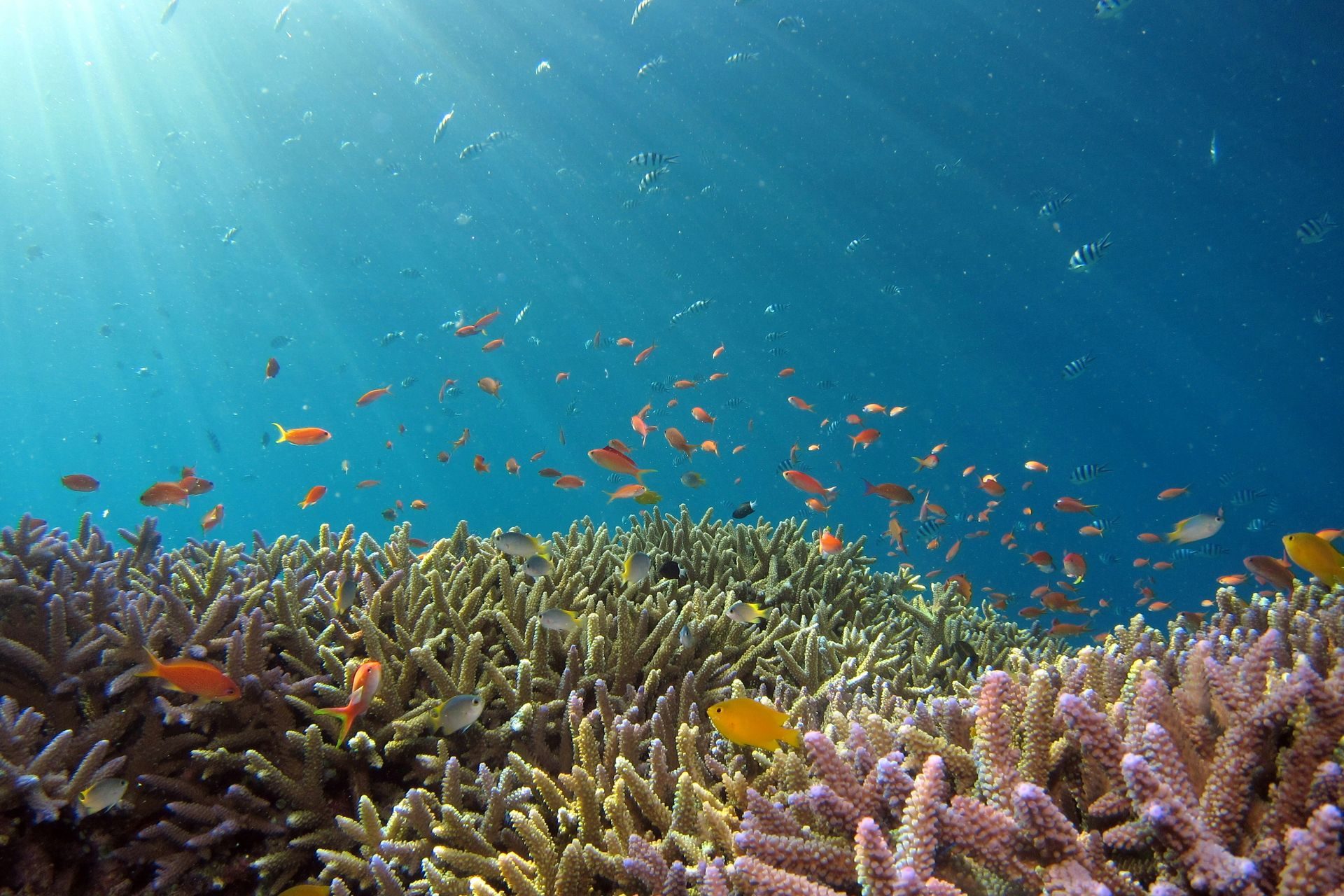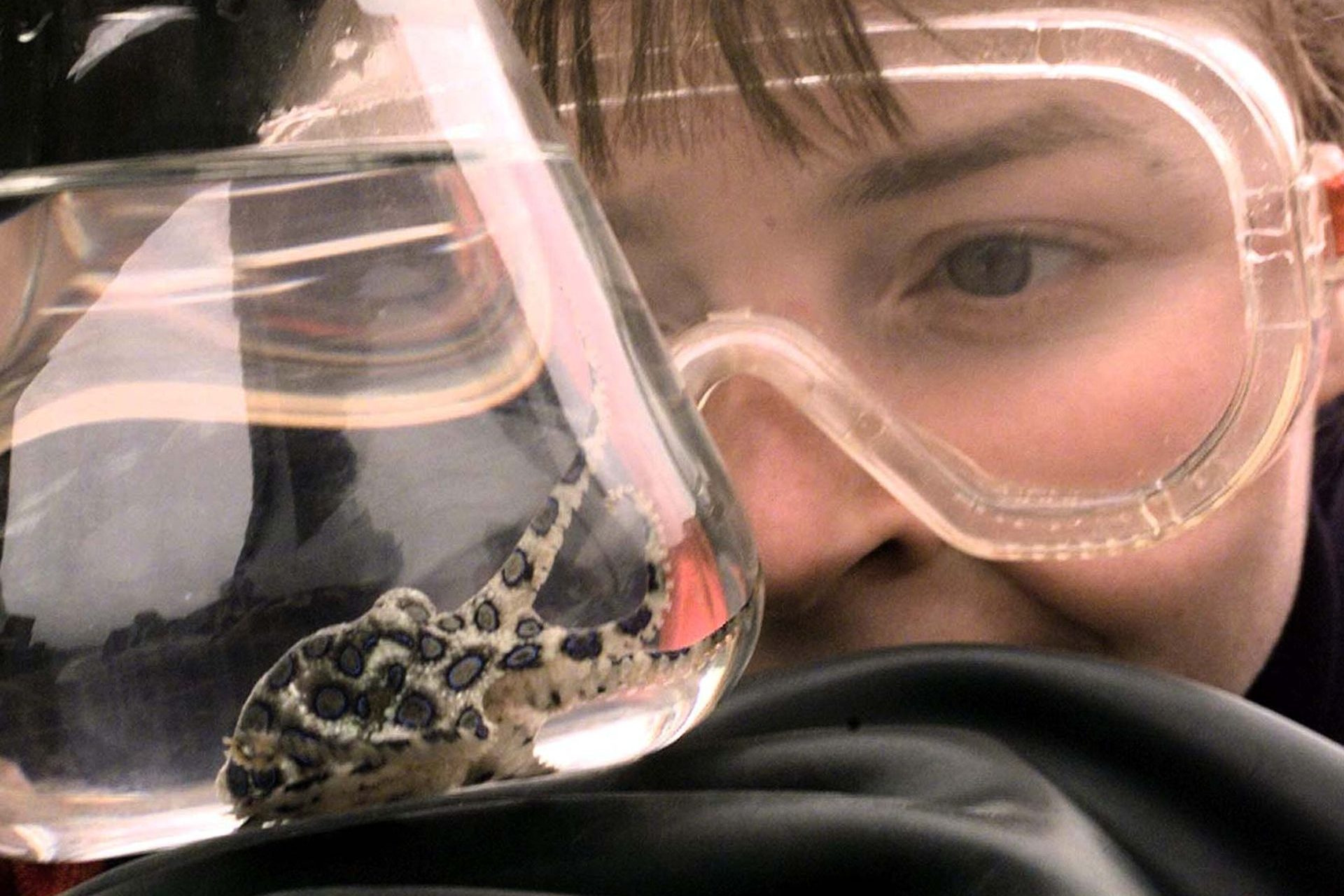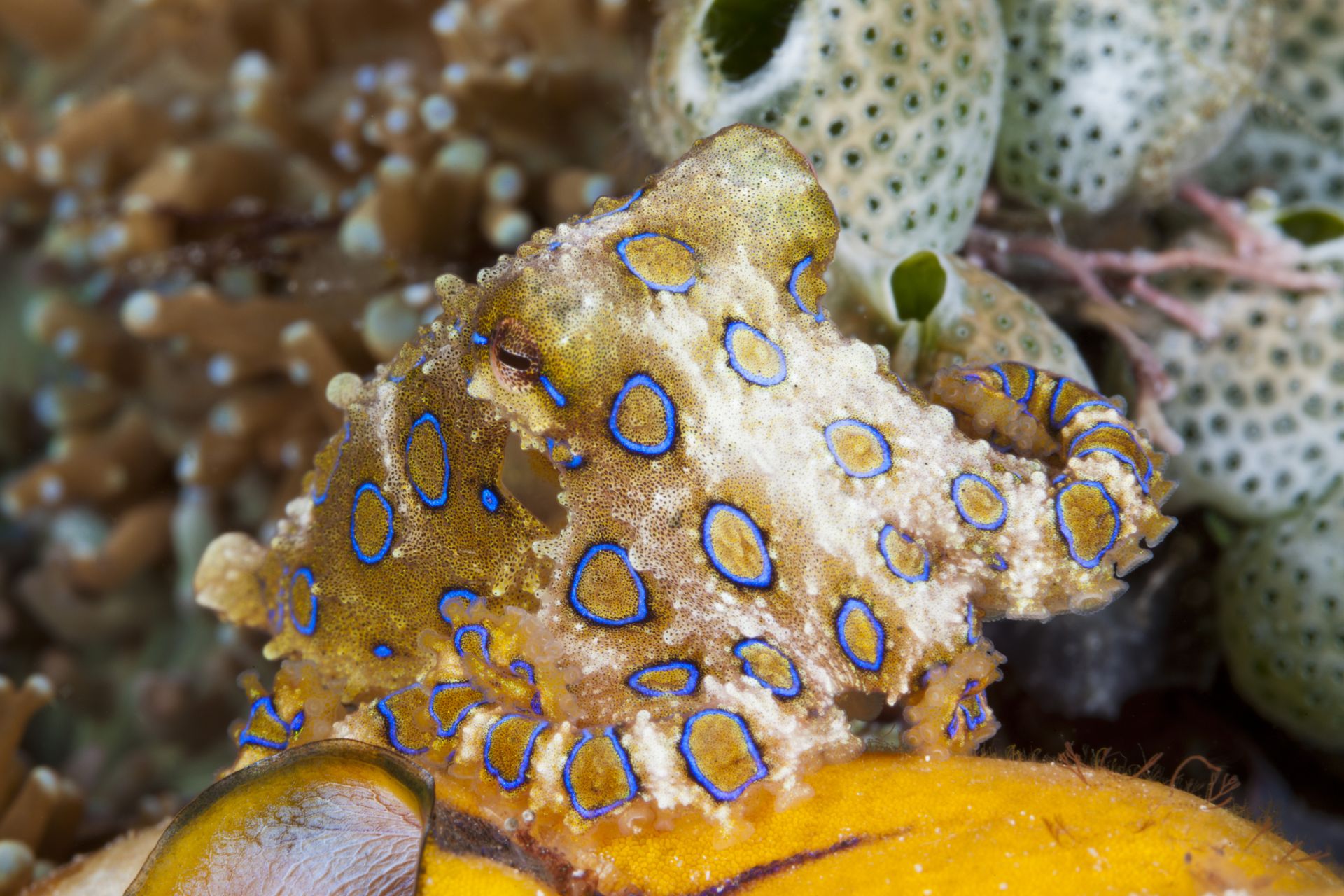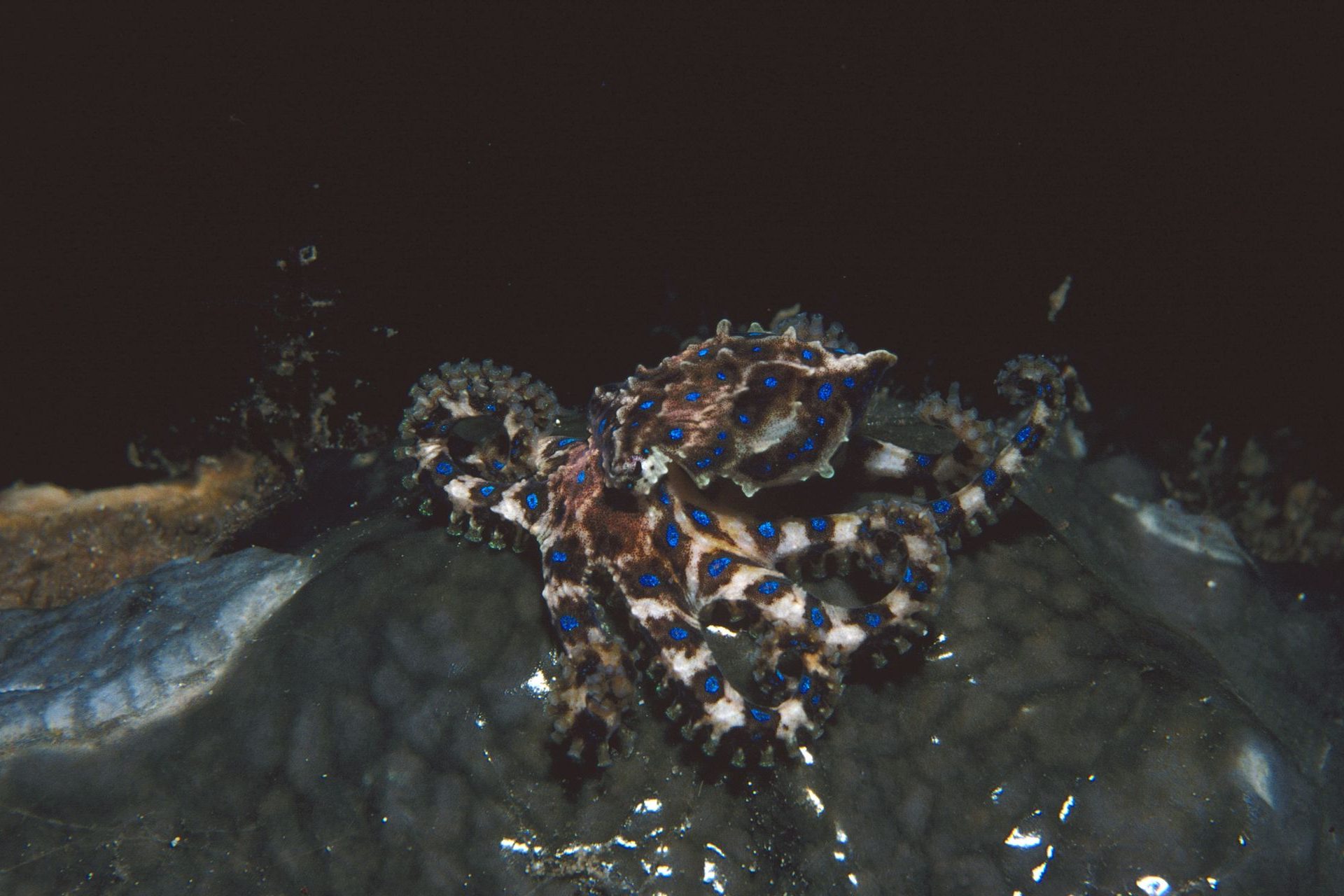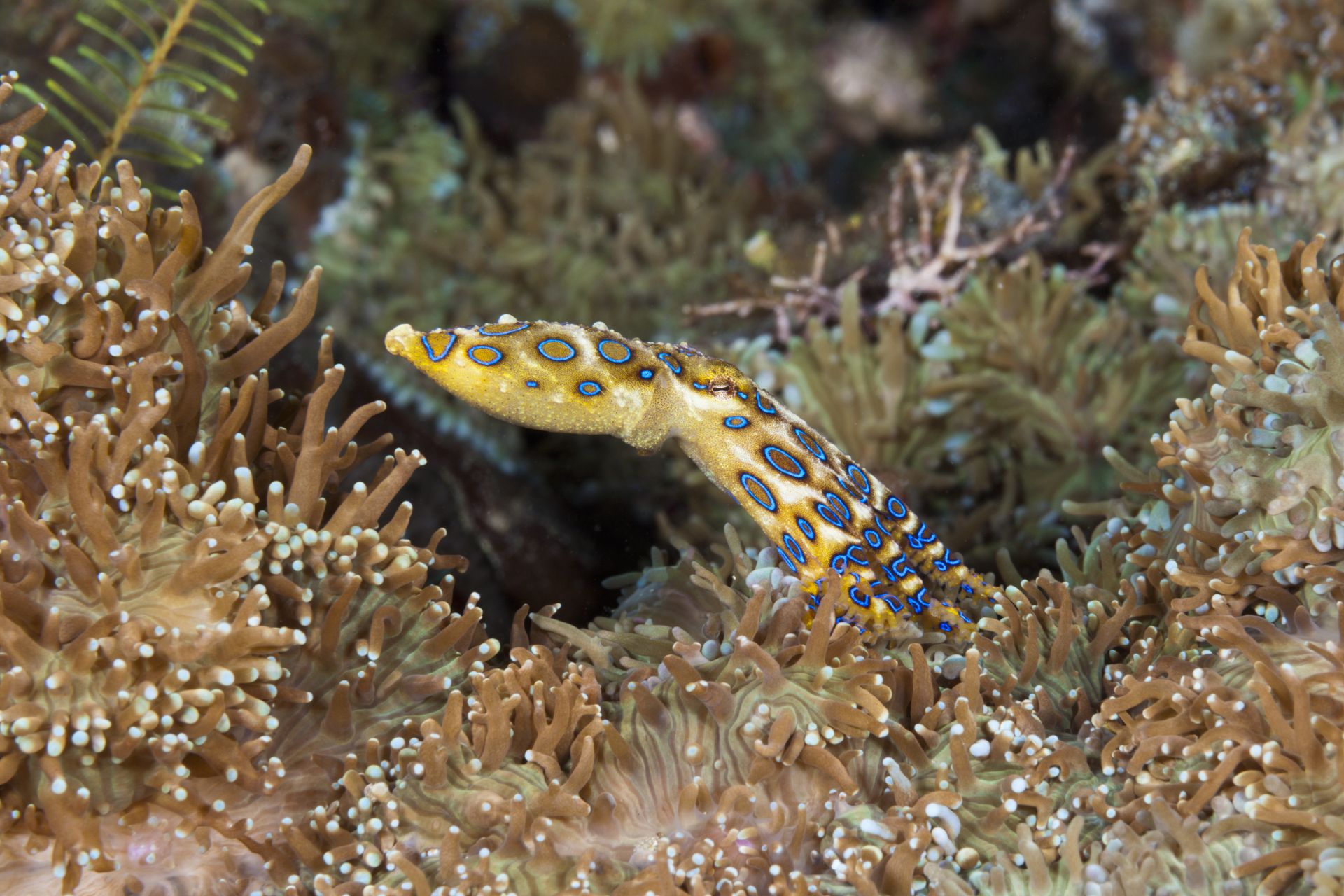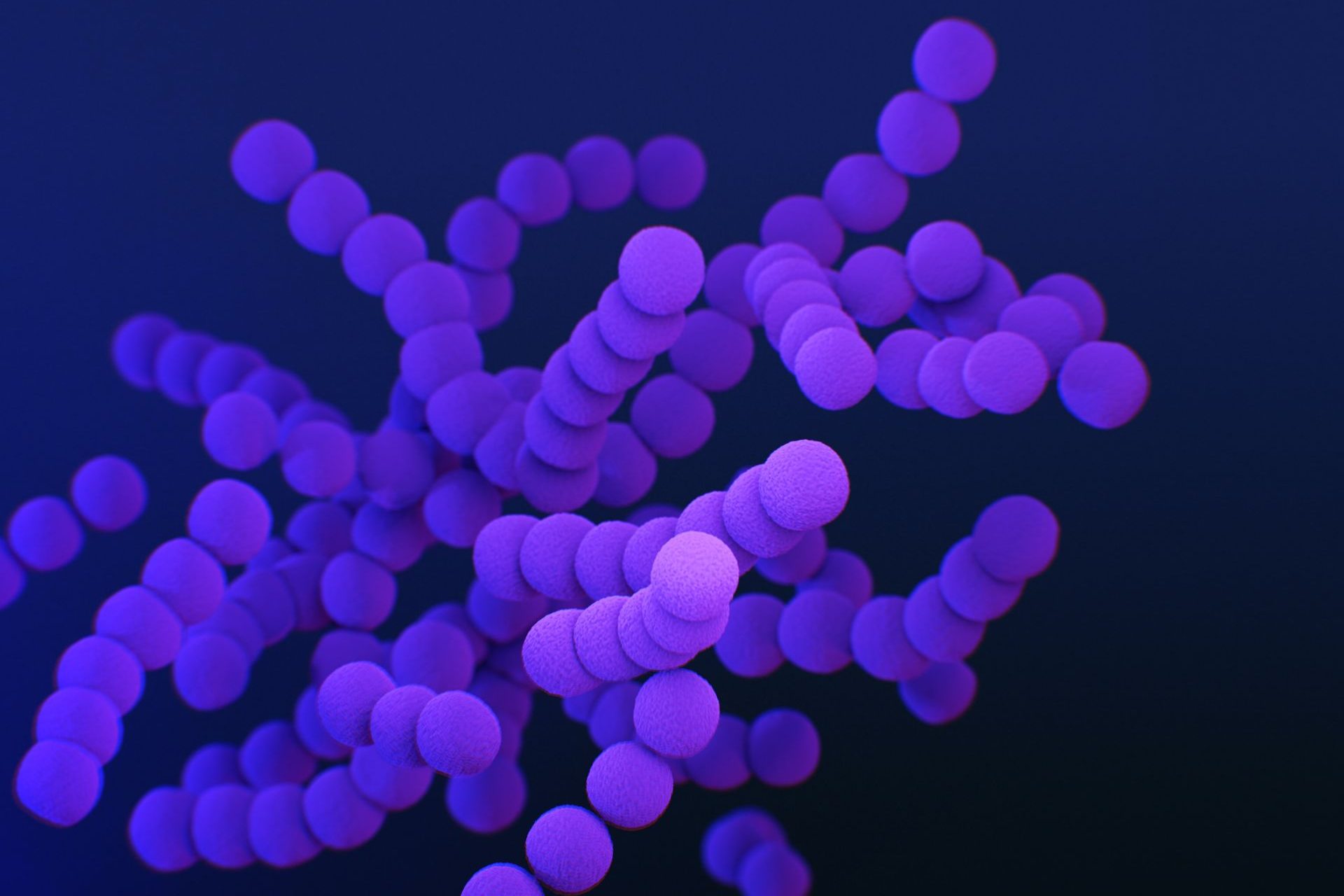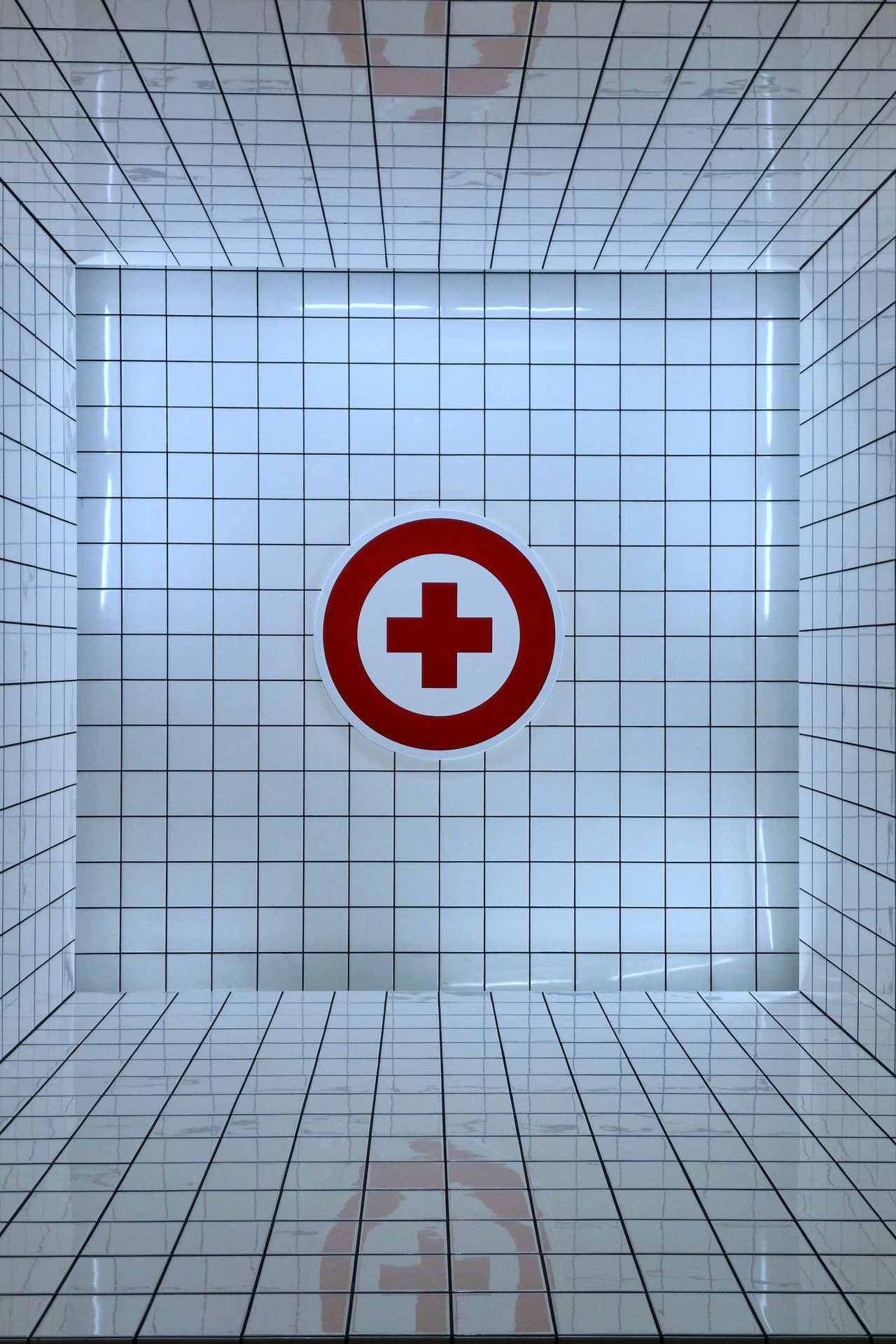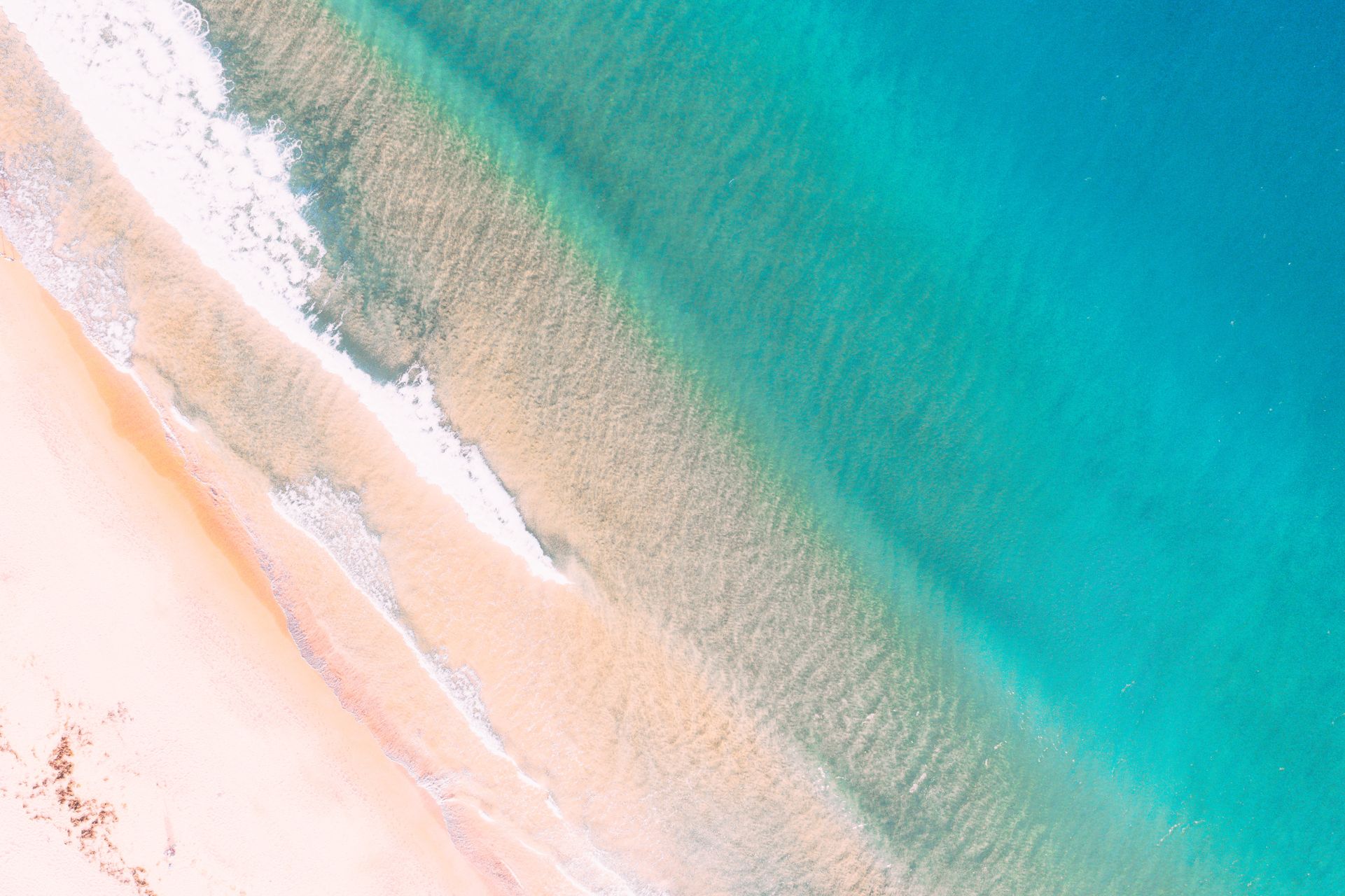The blue-ringed octopus, a deadly species found mainly in Australia
This is the blue-ringed octopus: a species of animal that is certainly beautiful but whose toxicity makes it very dangerous to other animals and humans.
Follow Showbizz Daily to see the best photo galleries every day
The blue-ringed octopus can be very small and yet dangerous. In 2023, a young man on an Australian beach came close to death after an octopus came out of a shell he had picked up. After throwing the shell on the ground, the man was bitten in the leg.
Image Michael Milverton / Unsplash
As the French magazine 'Science et Vie' reported, the man "started to feel unwell, a sign that the octopus venom was starting to work. Aware of the danger, he was quickly taken care of by emergency services... He was evacuated from the beach and rushed to hospital."
While this man escaped the worst, a toddler with fewer defenses could also have been bitten, with serious consequences.
Image: Zhimai Zhang / Unsplash
The blue-ringed octopus, or Hapalochlaena maculosa, is one of the rare cephalopods (a category of marine mollusks) capable of killing a human being.
Present in the tropical waters of the Indian and Pacific Oceans, it is found particularly in Australia, south of the Great Barrier Reef. It can also be found in New Caledonia or on other islands.
Image: Hiroko Yoshii / Unsplash
With a total wingspan of 10 to 15 centimeters (5 for the 'mantle' and up to 10 for the tentacles) and a weight of around 50 grams, the blue-ringed octopus has particularly light dimensions.
Its blue rings, which make it so remarkable, only light up in the event of stress or threat. This reaction is meant to signal its toxicity to possible predators.
Its venom, tetrodotoxin, is one of the most dangerous in the animal kingdom. And the octopus' habit of hiding in crevices or shells makes it even more tricky.
The blue-ringed octopus has two different poisons: a 'defensive' venom and a 'hunting' venom to kill its prey - mainly crustaceans such as shrimp, crabs, or small fish.
The venom is not produced by the animal itself but by bacteria located in its salivary glands which synthesize tetrodotoxin.
Image: CDC / Unsplash
The presence of the blue-ringed octopus near the surface of the water makes it all the more dangerous. No antidote is currently known, which makes any bite potentially fatal.
Image: Derek Owens / Unsplash
The poison blocks the victim's nerve cells, preventing the transmission of nerve signals to the muscles and causing progressive paralysis. When this paralysis reaches the respiratory muscles, a person can die of asphyxiation.
Image: Joao Santos / Unsplash
'Science et Vie' reports that this venom is insidious because the speed and intensity of the symptoms and pain vary. As a result, it can take a while before the cause of the paralysis is known and adequate medical treatment can be given.
Image: Enric Moreu / Unsplash
In any case, the person bitten by the octopus needs intensive care (assisted ventilation and monitoring of vital functions) due to the lack of an effective antidote.
Even when the beaches of Australia and the Pacific region are very beautiful, travelers should be careful when visiting them. The octopus is both discreet and formidable.
Image: Tim Patch / Unsplash
Follow Showbizz Daily to see the best photo galleries every day

